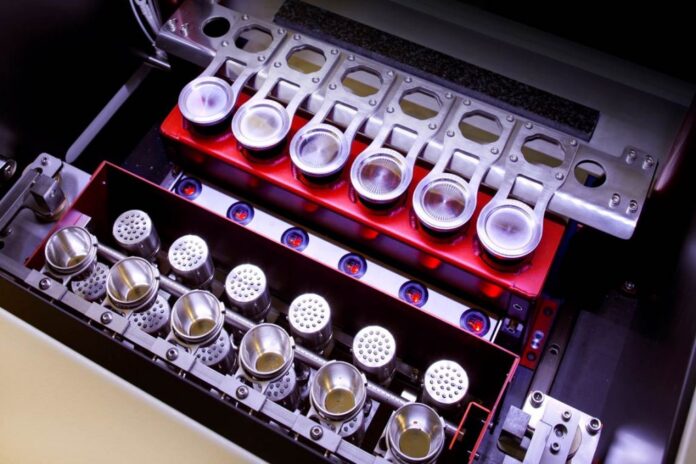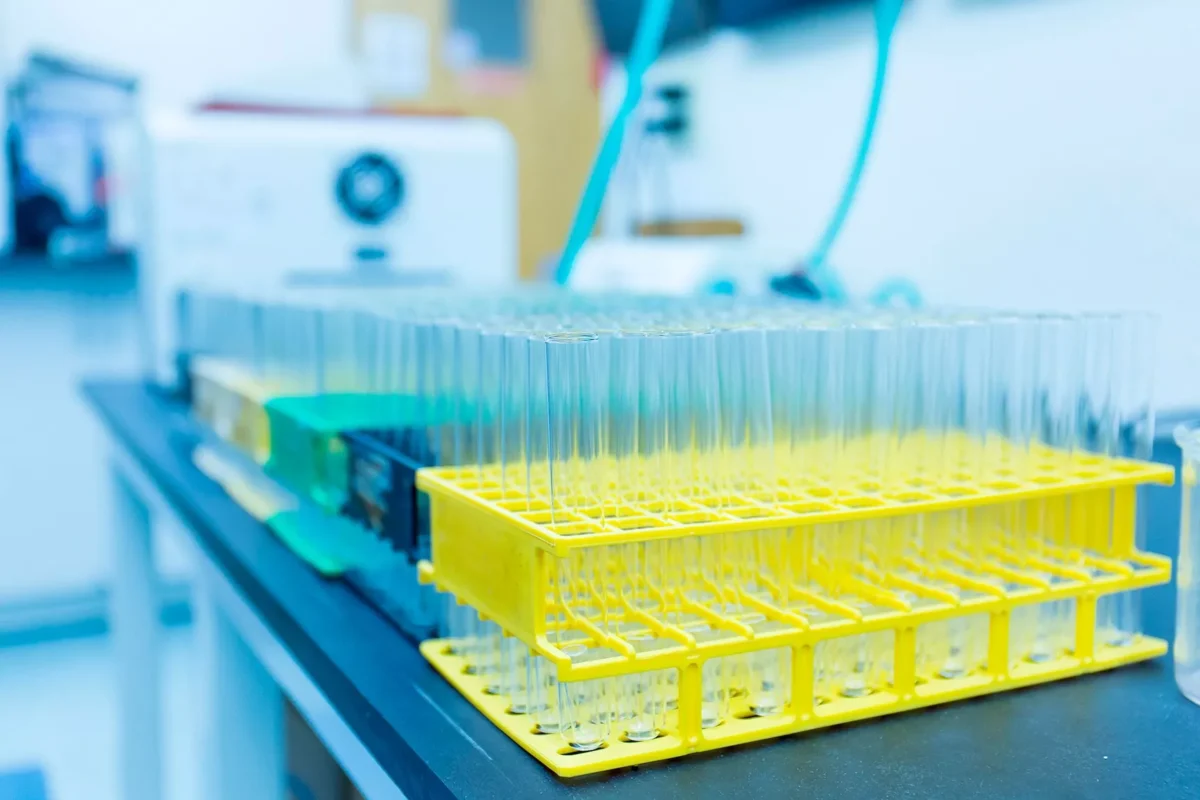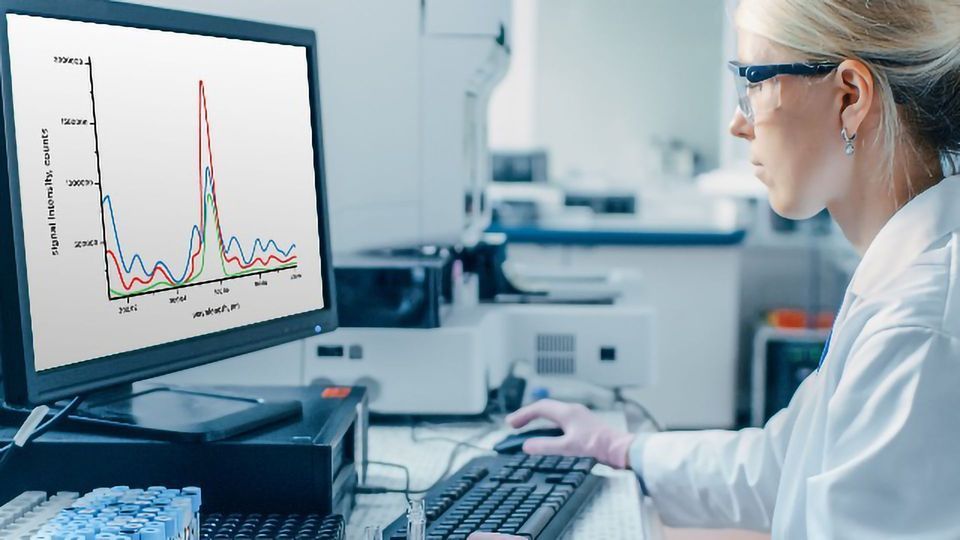
ICP MS instruments are at the cutting edge of accurate trace element analysis technology. These sophisticated instruments can detect minimal amounts of elements, making them invaluable tools for scientists and researchers looking to study and quantify trace elements in samples.
In this blog post, we will explore the advantages of using ICP MS instruments for trace element analysis, how they work, and the applications for which they are most often used.
What is ICP MS?
Inductively coupled plasma mass spectrometry (ICP MS) is a powerful and versatile analytical tool used to detect, measure, and analyze trace elements in a wide range of samples.
It combines two essential aspects of analytical chemistry, atomic emission, and mass spectrometry, into one instrument. This cutting-edge technology allows scientists to analyze samples with extremely high levels of sensitivity and accuracy.
The ICP MS system consists of an inductively coupled plasma (ICP) source, which provides the energy to excite the sample atoms, and a mass spectrometer, which measures the ions produced by the excited atoms.
The ICP produces a plasma, a state of matter where electrons are stripped away from the atoms in the sample, creating positively charged ions. These ions are then passed through the mass spectrometer, which separates them based on their mass-to-charge ratio. The resulting data can be used to identify and quantify trace elements in the sample accurately.
In addition to its high accuracy, ICP MS is known for its ability to measure small amounts of analytes (down to parts per trillion levels) and its wide dynamic range. This makes it an ideal choice for laboratories that require accurate results from even small concentrations of elements.
How does it work?

Inductively coupled plasma mass spectrometry (ICP MS) is an analytical technique used to measure sample trace elements. It works by introducing a sample into a plasma, a scorching and ionized gas, then measuring the present ions using a mass spectrometer. The mass spectrometer separates the different elements and measures their concentrations.
The ICP MS technique is highly sensitive and can detect even very low levels of elements. This is possible because the ions generated in the plasma have specific masses that can be identified.
The ions are extracted from the plasma, then passed through an interface that removes non-ionized components. The remaining ions are then accelerated toward the mass spectrometer, where they are separated according to their mass-to-charge ratio. The detected ions are then measured, and the concentrations of different elements can be calculated.
ICP MS is precise and accurate because it uses multiple frequencies of light to excite atoms in the sample and determine their mass. This makes it ideal for analyzing trace elements in samples with low concentrations. It is also speedy, making it suitable for high-throughput applications such as environmental monitoring or food safety testing.
What are the benefits?
ICP MS instruments offer numerous benefits for accurate trace element analysis. One of the most significant benefits is the increased precision and accuracy of using ICP MS technology.
This instrument uses high-energy plasma to atomize and ionize sample material, which allows for analyzing elements at extremely low levels of concentration. This makes it possible to detect undetectable elements.
In addition, ICP MS technology is susceptible, which allows for more precise measurements than other analytical methods. The technology also has a wide dynamic range, meaning it can detect high and low levels of a given element without dilution. Furthermore, ICP MS instruments can analyze a wide variety of sample types with minimal sample preparation, including liquids, solids, and gases.
Finally, ICP MS technology is fast and easy to use. It typically takes less than an hour to analyze a sample, and most results are available in as little as 15 minutes. This makes it ideal for laboratories where quick turn-around times are critical.
How accurate is it?

ICP MS instruments provide some of the most accurate trace element analyses. This is because they measure the concentrations of elements down to parts per trillion (ppt), which is extremely precise.
In addition, the instrument’s ability to distinguish between ions of similar mass, known as mass discrimination, allows for even more accurate readings. This level of accuracy makes ICP MS an ideal choice for laboratories and other organizations looking to measure trace elements in various samples.
Furthermore, the technology can detect even small changes in elemental concentrations over time, meaning it can be used for long-term monitoring of trace element levels. All of these features make ICP MS instruments the most reliable option for accurate trace element analysis.
Who uses it?
ICP MS instruments are used by a wide range of industries, including agriculture, pharmaceuticals, biotechnology, and environmental monitoring. This technology is especially important for scientists and researchers who require highly accurate trace element analysis in order to obtain accurate results. The ability to detect trace elements with extreme precision can be invaluable in the fields of forensics and toxicology, as well as geochemistry.
The analysis of trace elements using ICP MS instruments is also useful in mining and industrial applications, where the need for accurate measurement of metals is critical. In the medical field, ICP MS instruments are used to analyze drugs and other medical compounds for accuracy and safety.
Due to its high sensitivity and accuracy, ICP MS has become a popular tool for quality assurance and regulatory compliance testing. It is also becoming increasingly important in food and beverage testing, as trace elements can provide insight into the safety and quality of foods and drinks.
In conclusion, ICP MS instruments are an essential tool for a variety of industries and applications. With its cutting-edge technology, it can provide highly accurate trace element analysis that is critical for many types of scientific and industrial processes.

Conclusion
In conclusion, Inductively Coupled Plasma Mass Spectrometry (ICP MS) is a cutting-edge technology for accurate trace element analysis. This technology is widely used in various industries, from environmental monitoring to pharmaceutical research. With its reliable and precise performance, ICP MS is an invaluable tool for analyzing trace elements in multiple samples.








